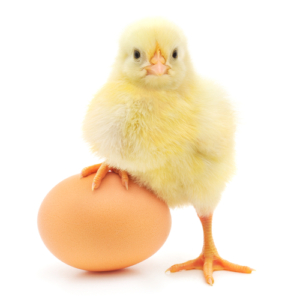The Rising Egg Price Dilemma: Understanding the Forces at Play

As prices soar and people start to rethink their grocery budgets, egg prices are skyrocketing, raising some serious questions about our food supply and the factors driving these increases. Recently, White House Press Secretary Karoline Leavitt sparked a debate by attributing rising egg prices to decisions made during the previous administration.
While it is true that past policies led to significant actions by the Department of Agriculture—including directives to cull over 100 million chickens—this doesn’t account for the myriad other factors that have contributed to today’s skyrocketing egg prices.
Egg Price Trends: A Historical Perspective
In February 2021, a dozen eggs averaged just $1.60. Fast forward to 2023, and that same dozen is costing consumers roughly $3.50. It’s no wonder that families are feeling the pinch! Here’s the breakdown of this sharp increase:
- 2021: Average price rises to $1.93 (20% increase).
- 2022: The avian flu outbreak and other supply chain issues push the price up to $2.51—a staggering 30% increase from the previous year.
- 2023: Prices continue to spike, peaking again in February, only to stabilize at around $2.50 by year-end.
- 2024 Predictions: The USDA anticipates a 20.3% rise in egg prices, further burdening consumers.
The Bird Flu Crisis
At the center of this volatile pricing landscape is the Highly Pathogenic Avian Influenza (HPAI). Since 2022, it has decimated the U.S. chicken population—which was already battered by culling directives—with over 108 million chickens succumbing to the disease. In just the last few months, an additional 13 million chickens have died. The Centers for Disease Control and Prevention reveal a grim survival rate; once chickens become infected, they have—at most—a 10% chance of survival.
The USDA employs culling as a necessary measure to stem outbreaks, leading to understandable distress among consumers and farmers alike. They have the authority to enforce these drastic measures under the Animal Health Protection Act, and unfortunately, it’s a reality we must acknowledge.
Broader Food Price Implications
The ramifications of HPAI extend beyond just egg prices. As important as eggs are in our diets, the disease has recently been detected in cattle, setting the stage for increased costs for both milk and beef. Here’s a snapshot of the data outlining recent trends:
- Milk Prices: Up 11.7% year-over-year; expected to rise an additional 1.3% in 2025.
- Beef Prices: Up 4.9% annually; projected increase of 1.5% going forward.
The theme is clear: food prices are on an upward trajectory, a fact we at the Extreme Investor Network have been warning about for years.
The Road Ahead: Food Inflation and Supply Shortages
Our models predict that rising food inflation is far from over. If anything, consumers should prepare for more significant challenges in the next two years. We anticipate severe weather events, including potential droughts from 2025 to 2027 in both the U.S. and Canada. Current conditions suggest that these trends may already be beginning to materialize and will likely intensify.
Given these forecasts, we strongly advocate that consumers consider taking proactive measures by stockpiling food. This isn’t just a suggestion; it’s a preparation strategy rooted in necessity as we navigate an increasingly unstable supply chain and market.
Conclusion: Responsibility and Preparedness
At the Extreme Investor Network, we believe understanding the intricate dynamics affecting our food supply is just as essential as investing in potential solutions. By staying informed and prepared, we can navigate these tumultuous times more effectively.
In a market where every penny counts, knowledge truly is power. Don’t fall behind in the escalating battle with food prices—stay updated, stay informed, and arm yourself with the tools you need to safeguard your and your family’s future.
Join us at Extreme Investor Network for ongoing insights and expert analysis as we continue to monitor these critical trends.

